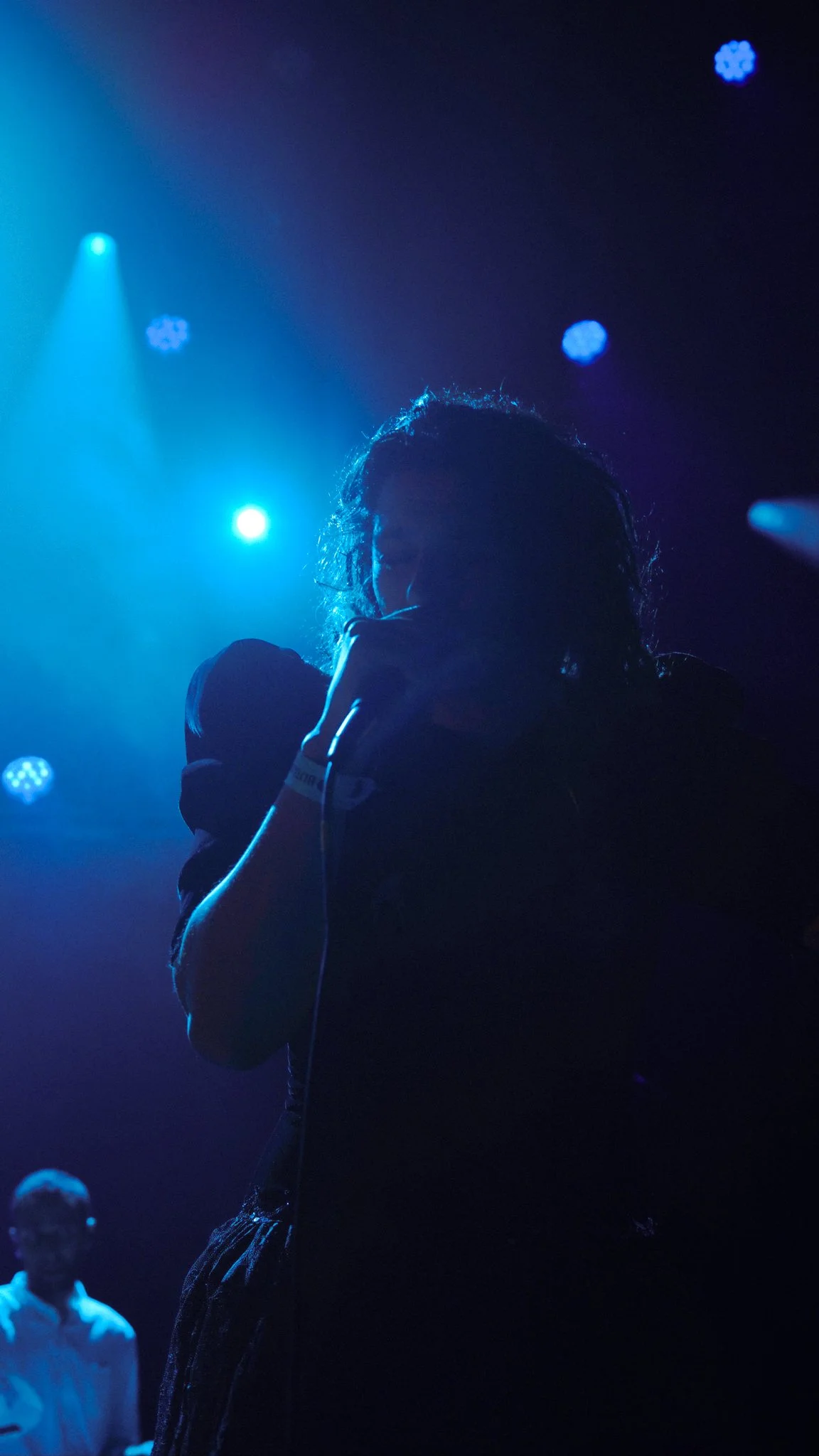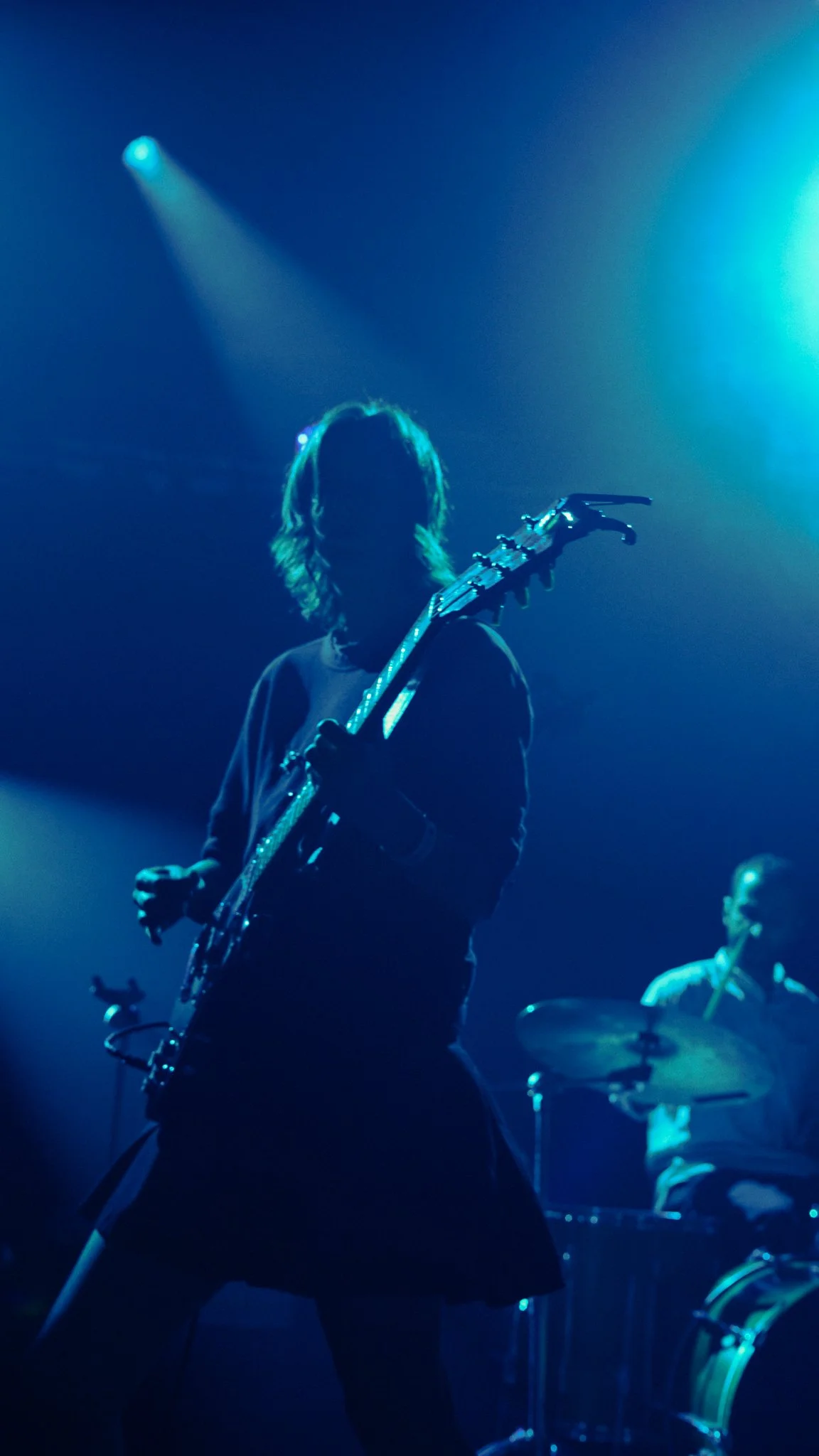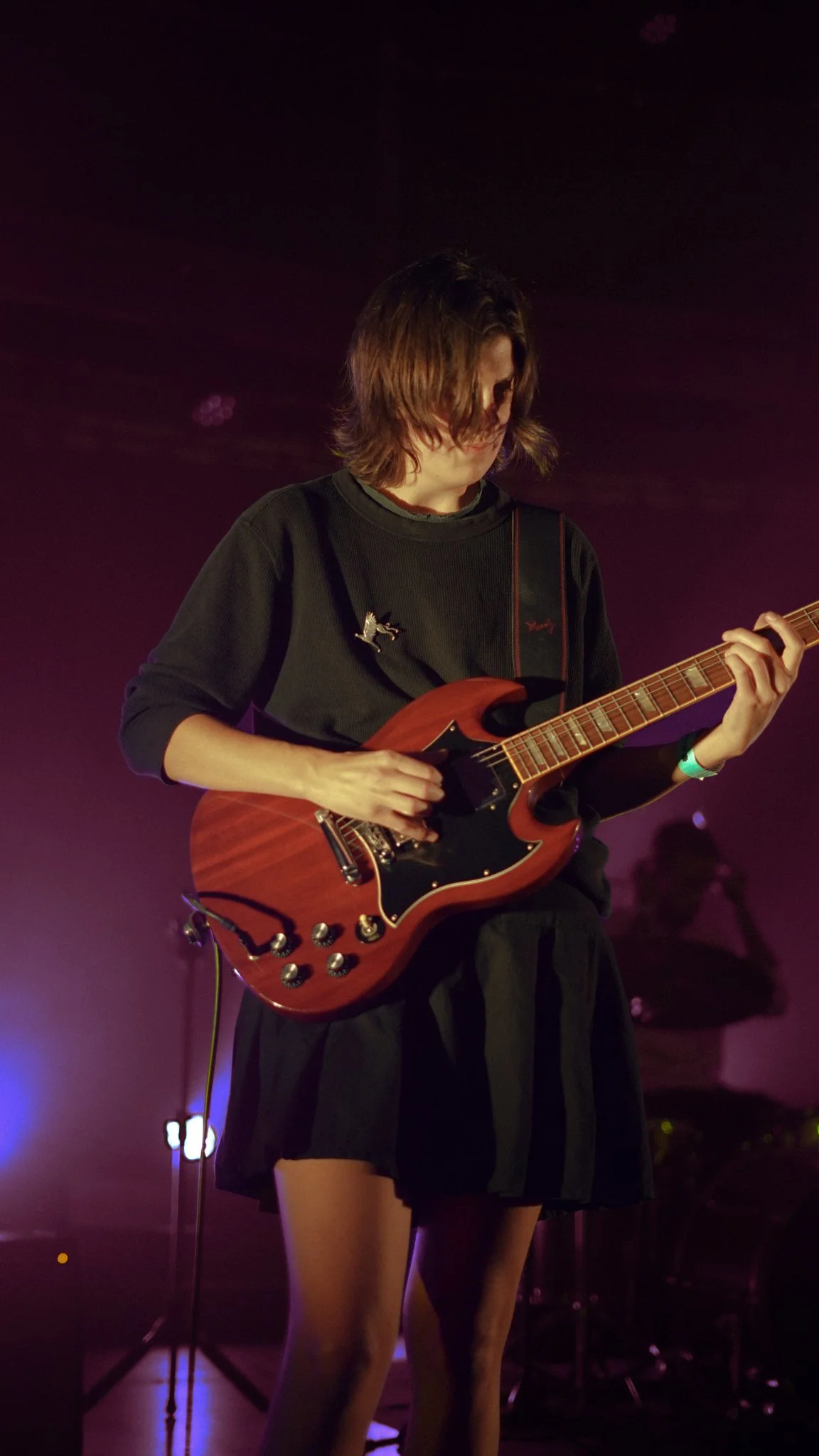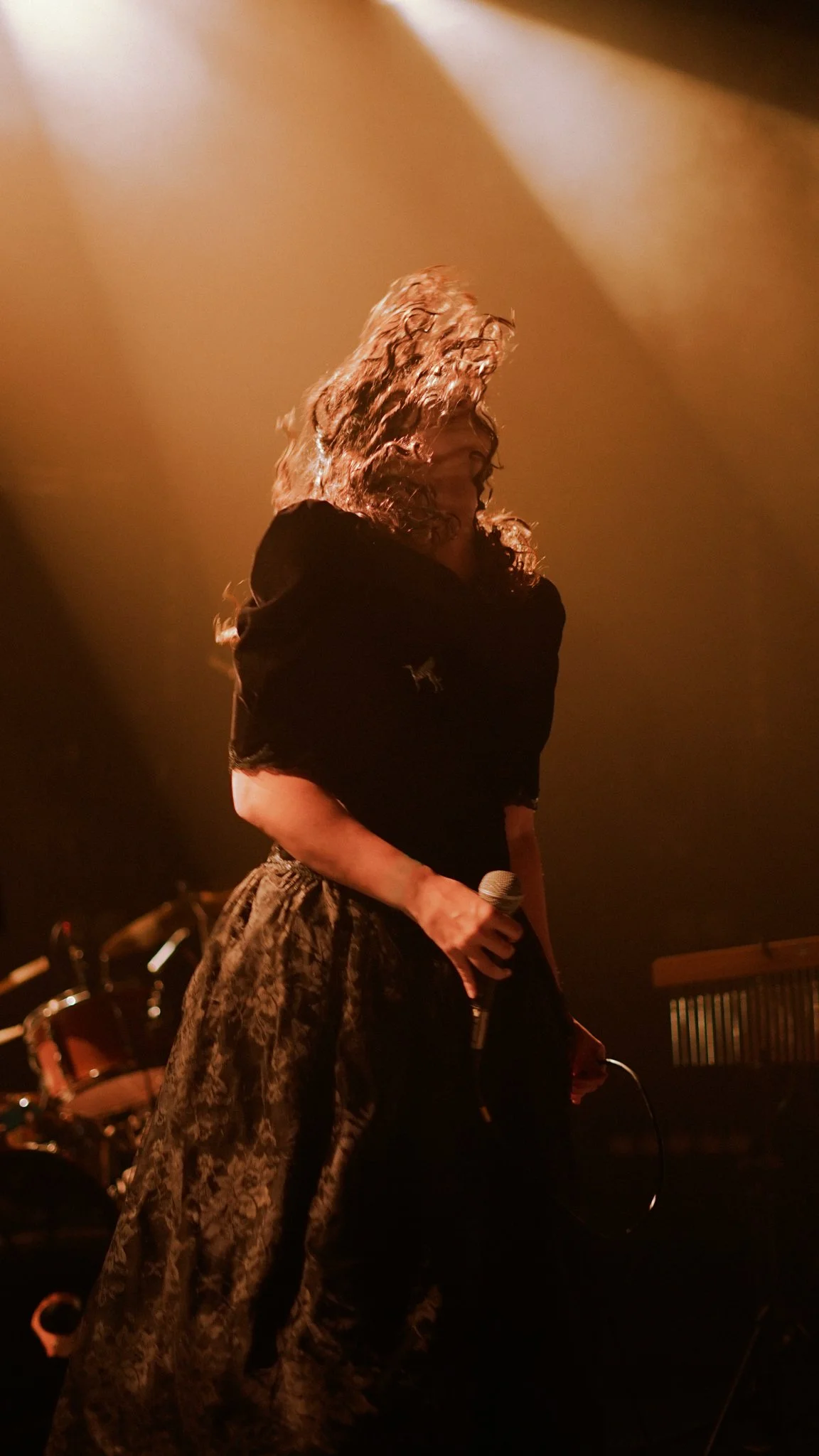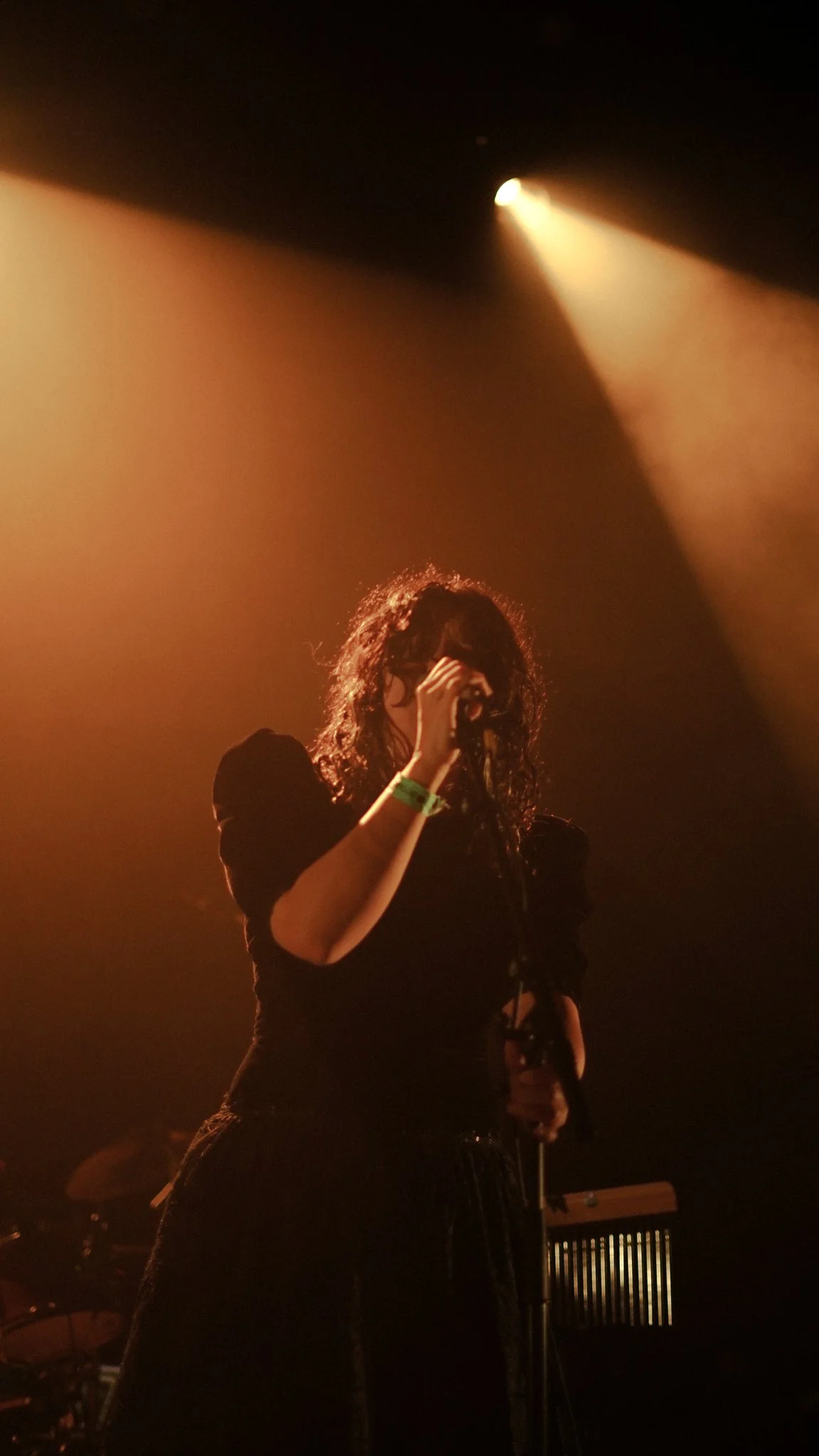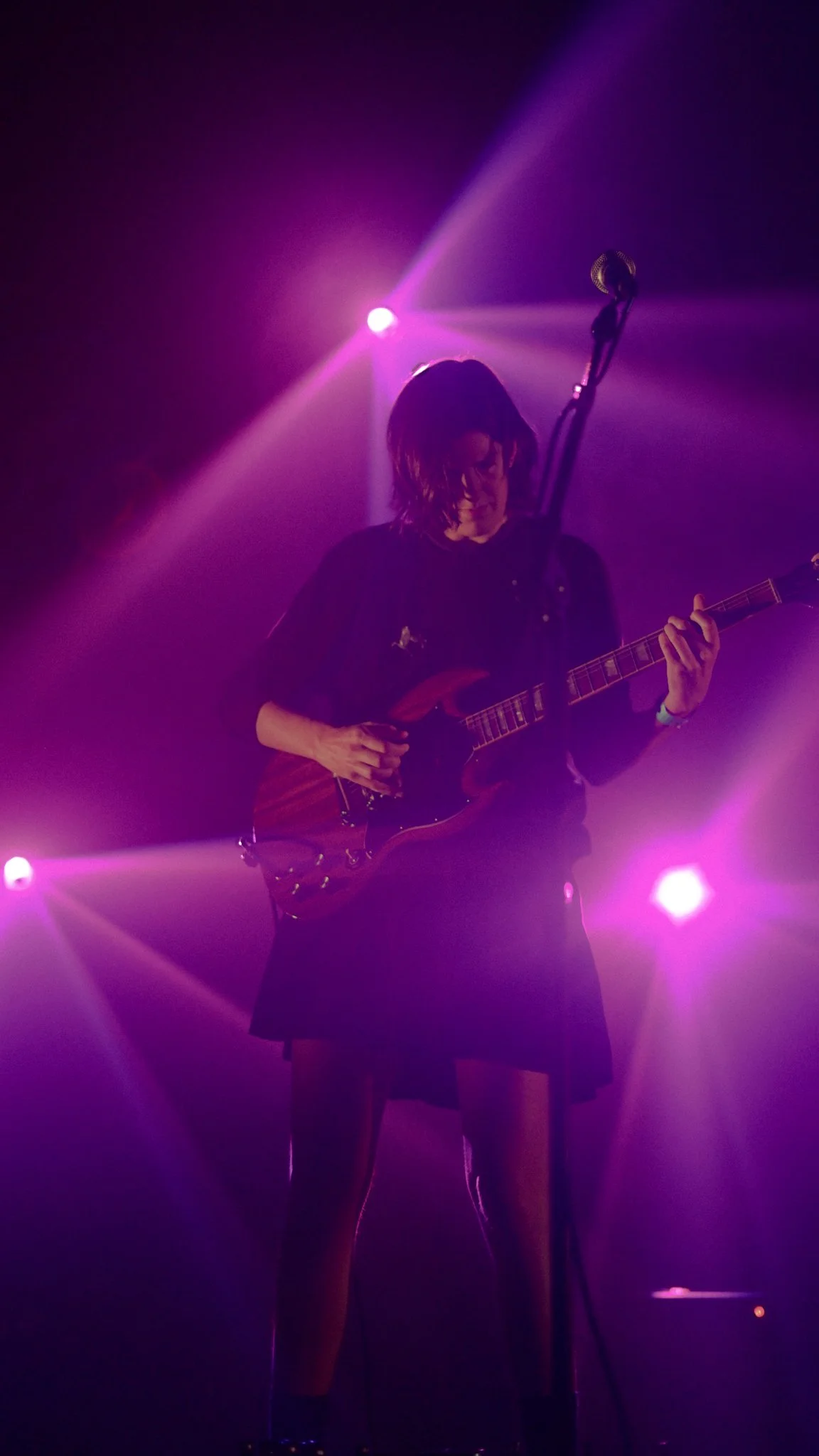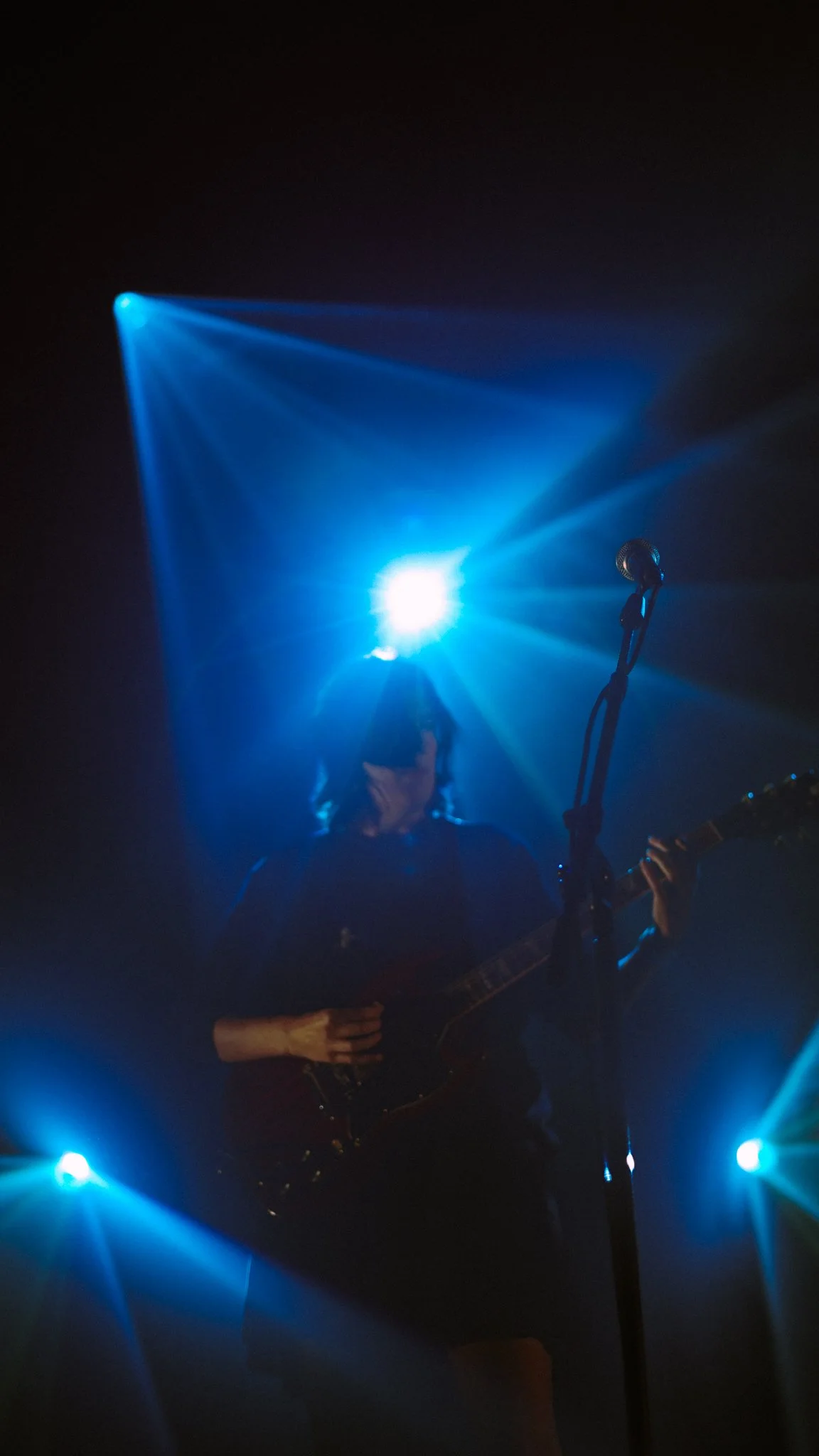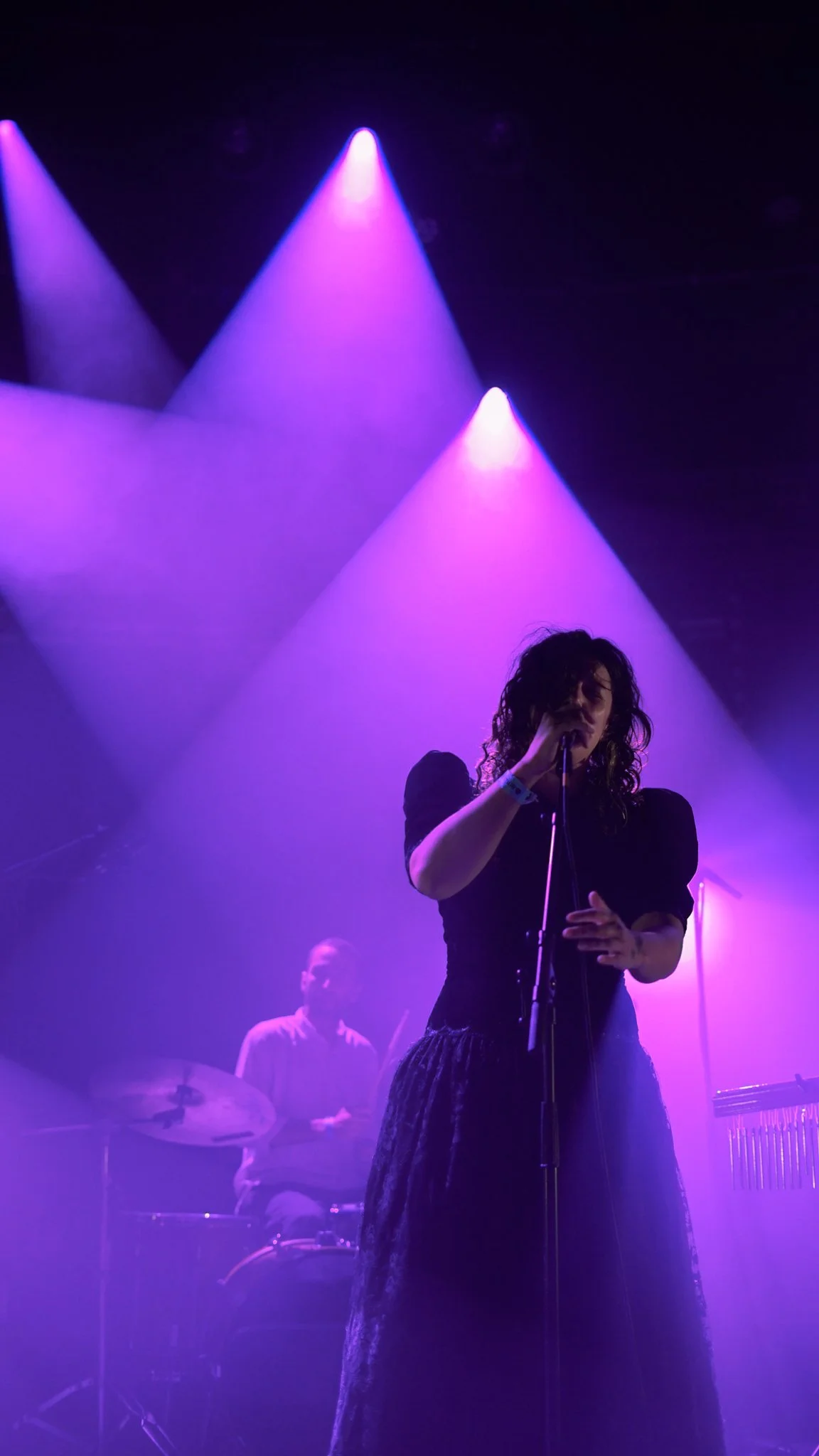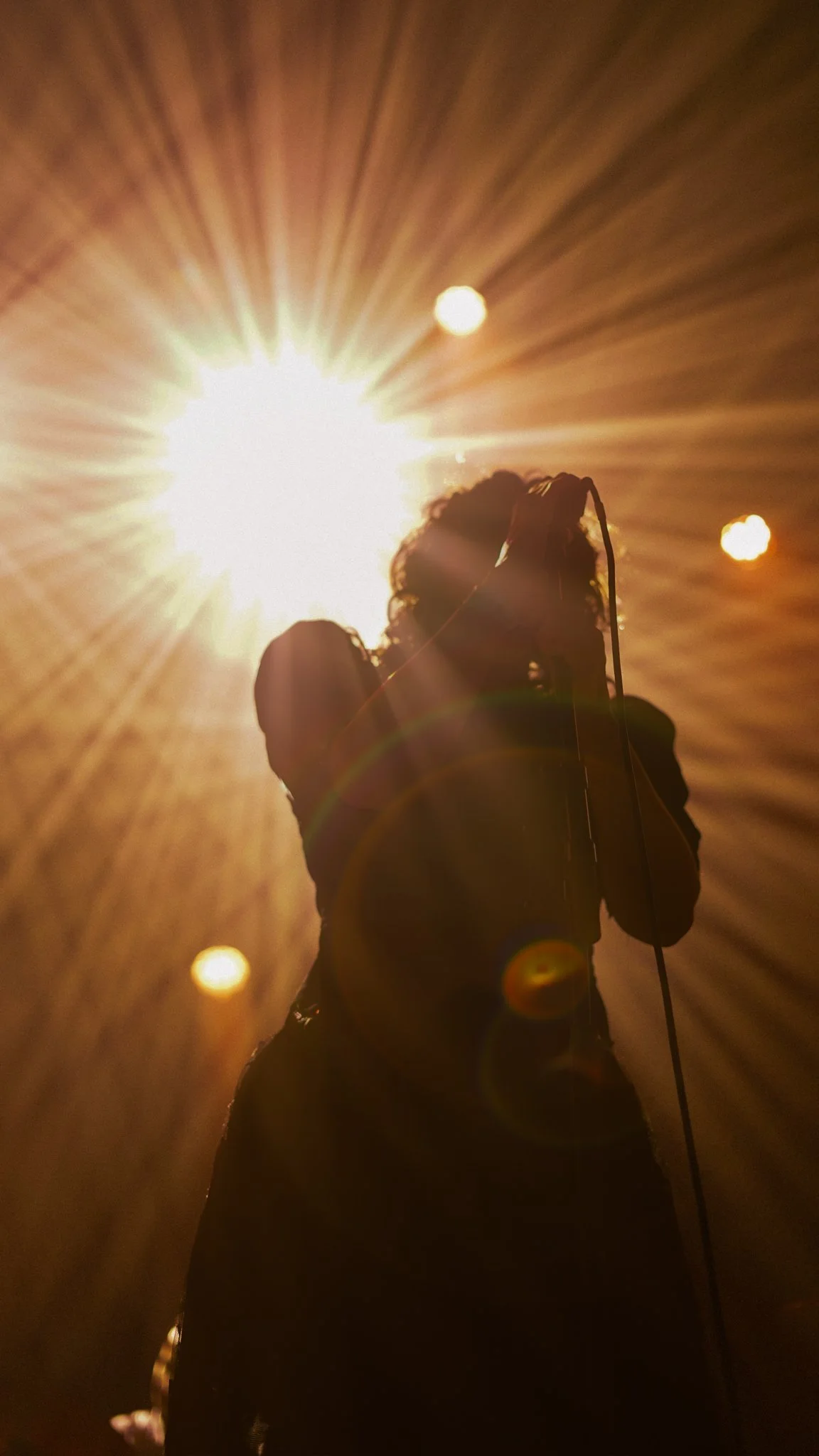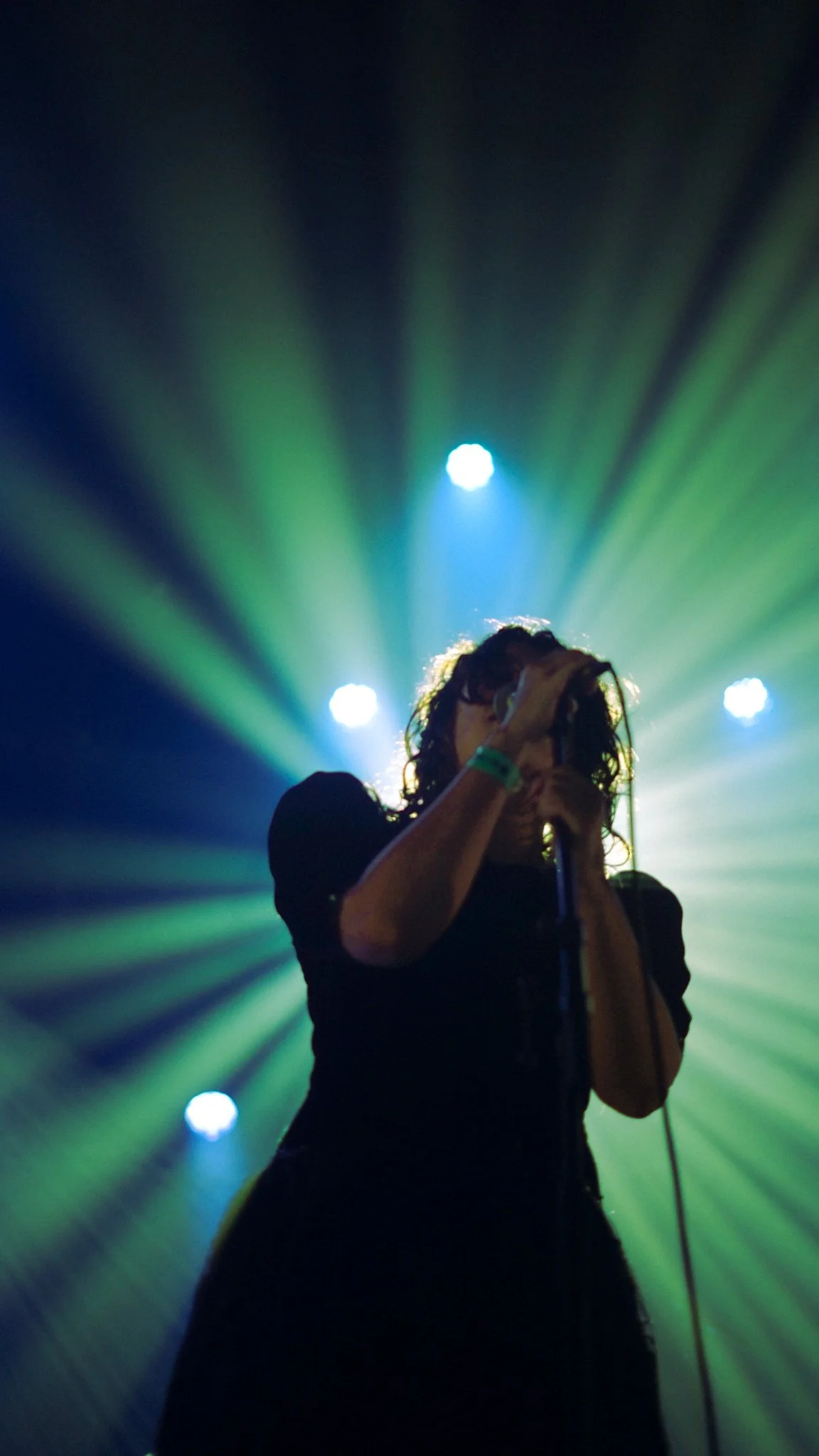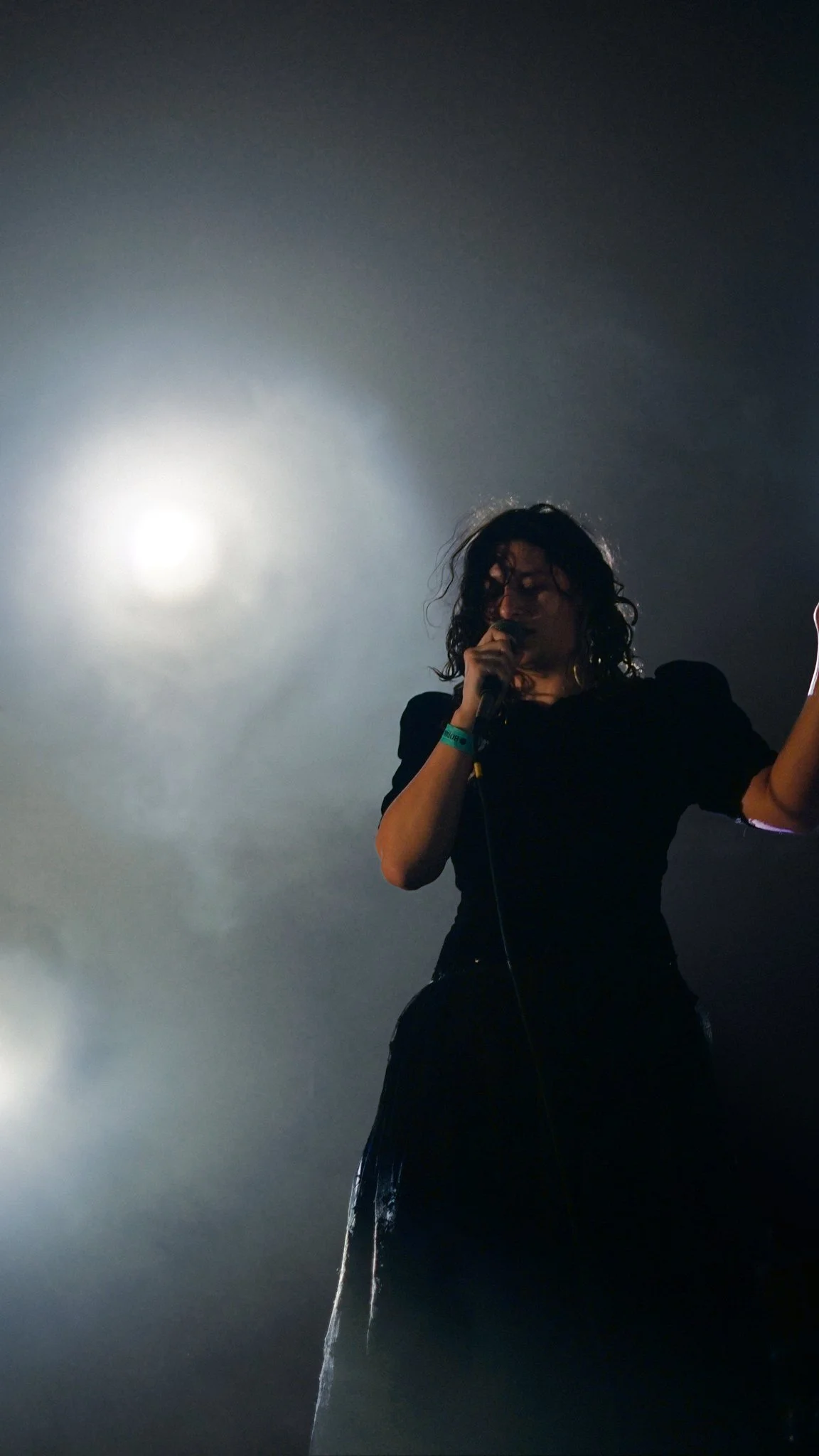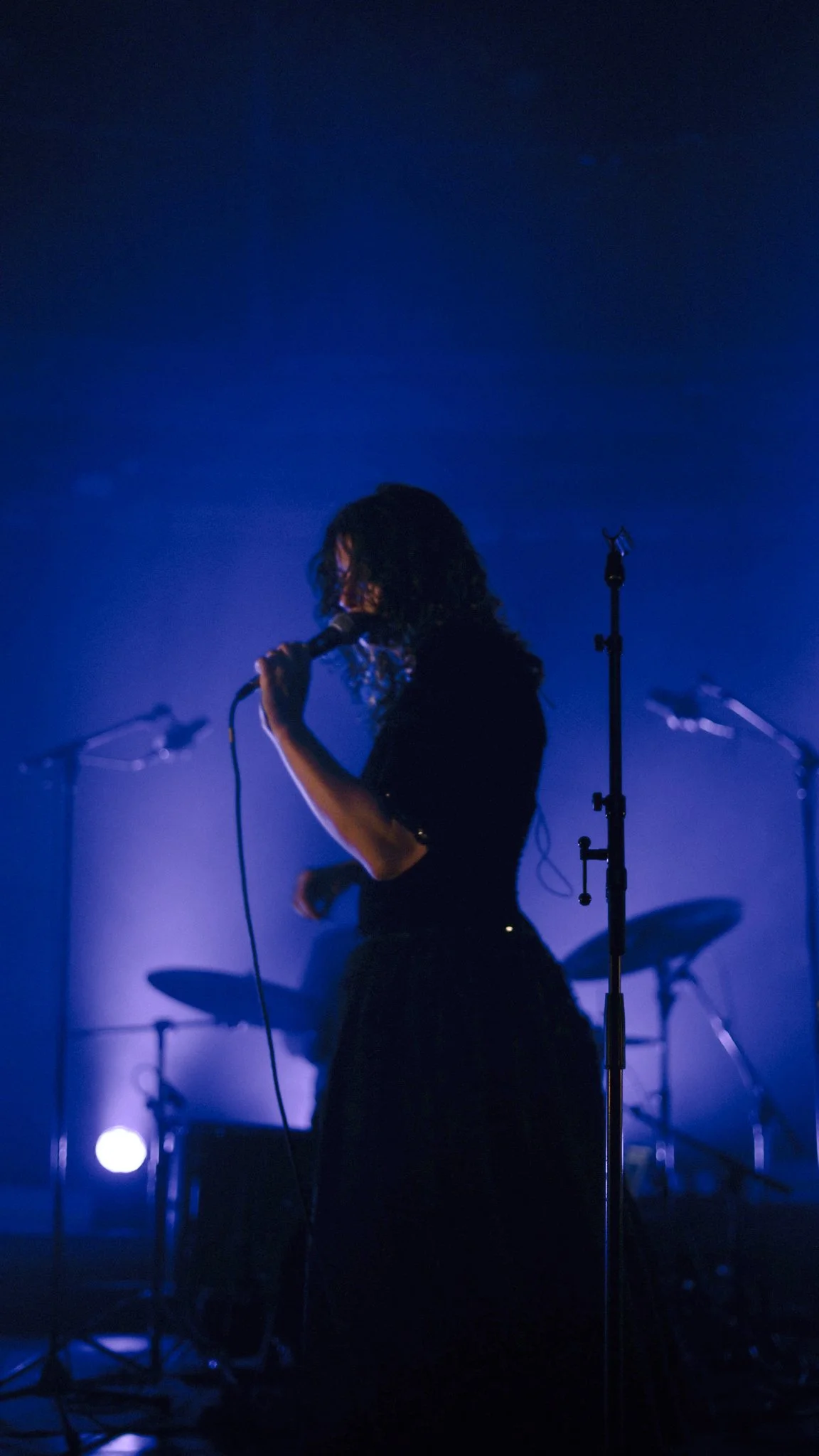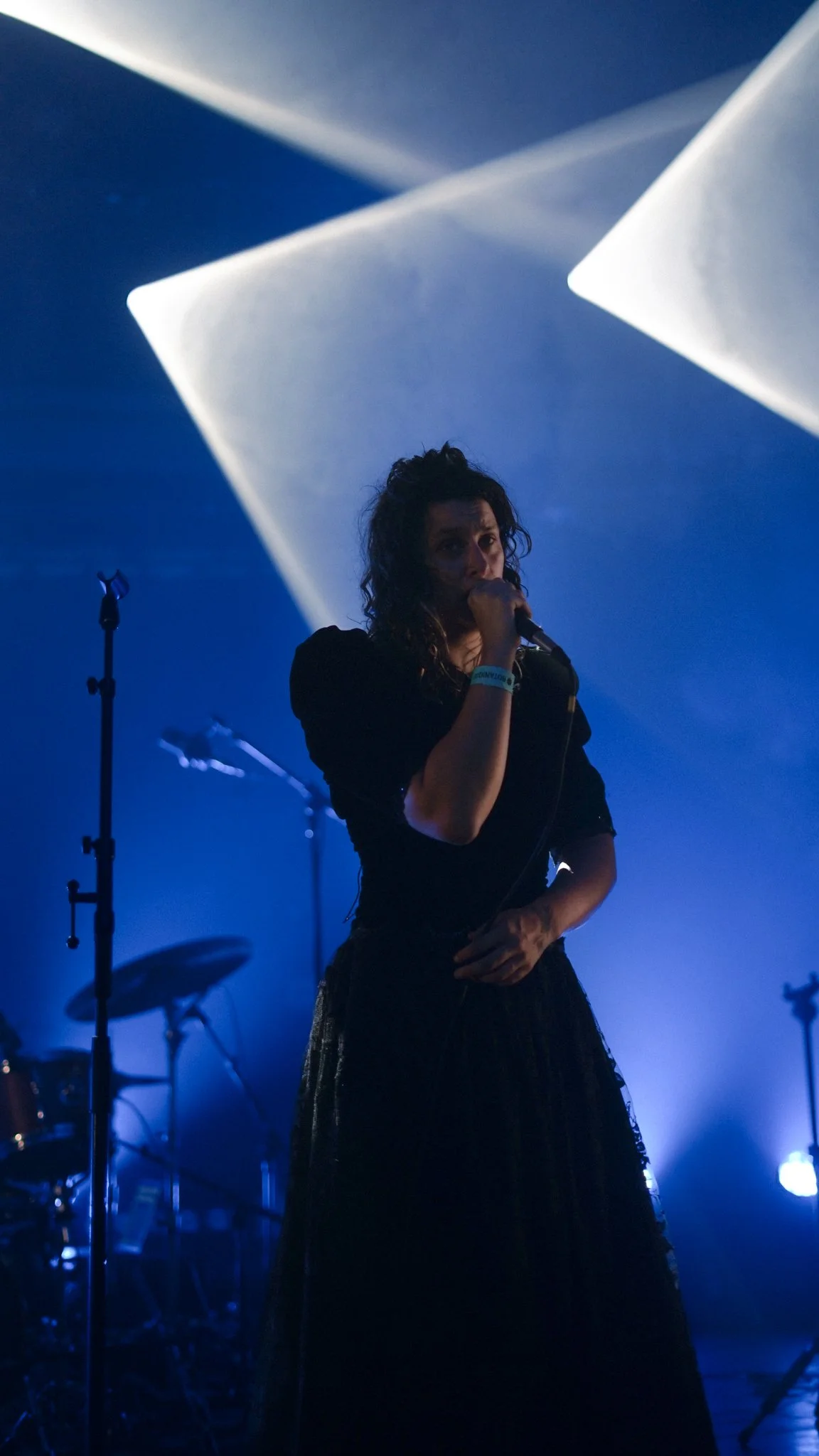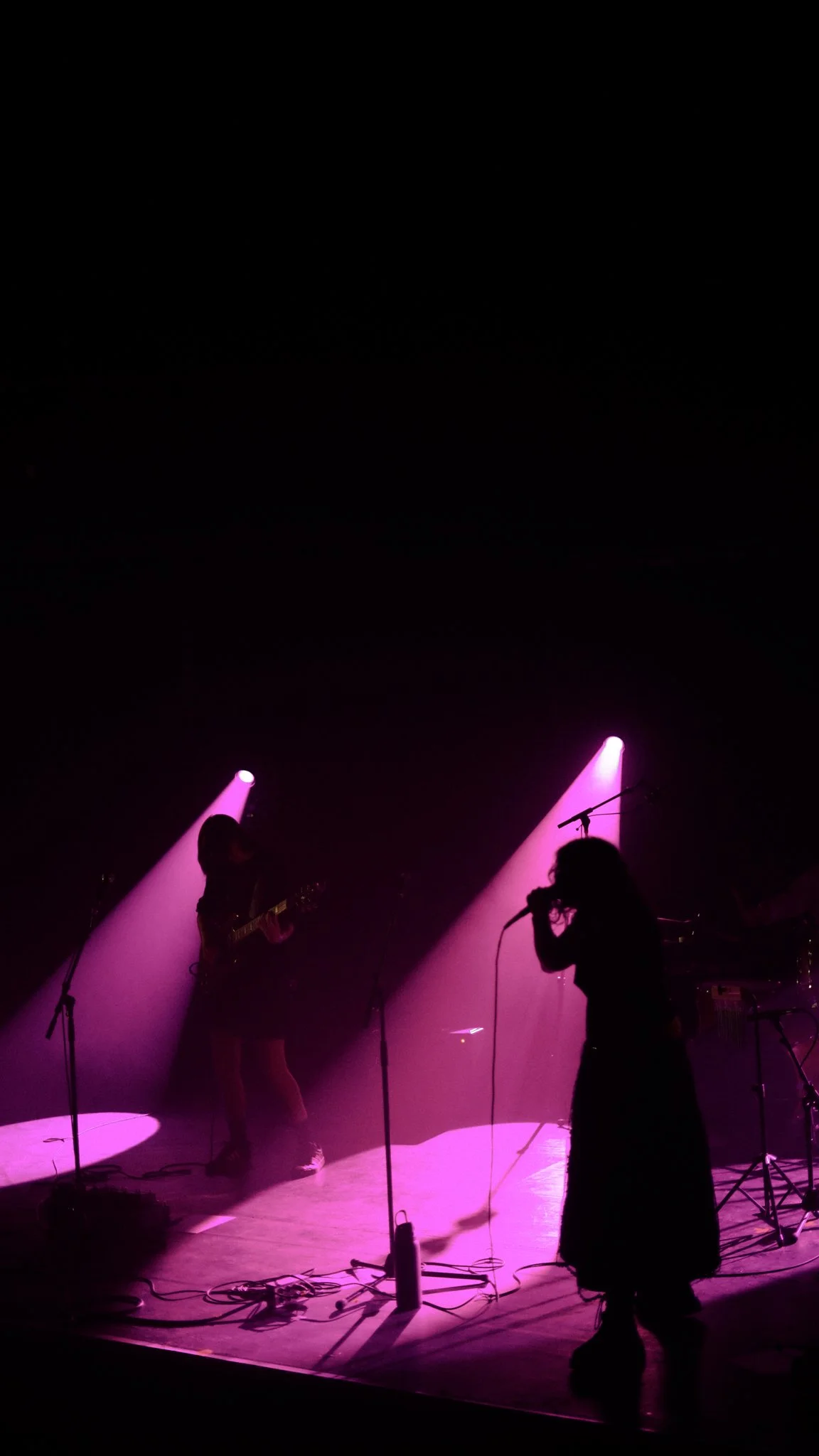Q&A + Review: Boyish Premiere Their New Record ‘Gun’ on Brussels’ Stage
INTERVIEW
INTERVIEW
☆ BY IVONA HOMICIANU ☆
Photos By Ivona Homicianu
BOYISH HAVE YEARNED FOR THEIR LATEST RECORD GUN - which becomes more apparent with the band touring Europe. Stopping in Brussels at Botanique, a cultural venue shaped as a greenhouse that includes unique rooms for emerging artists, Boyish stood on the names of highly famous artists who performed there as we caught up with their European shenanigans. As we stepped outside in the rare sunlight facing the botanical garden surrounding the venue ahead of their show, they described the intricacies behind this project.
Composed of India Shore on lead vocals and Claire Altendahl on guitar and vocals, Boyish have taken a turn in their career with Gun. A concept album based on a fictional town by the same name, Shore and Altendahl strayed from indie pop to indie alternative. The gratification received by making the album of their dreams was worth the risk. It suffices to observe the passion that emanates from the performance they put on—a dark yet marvellous atmosphere that seeps into your consciousness until you leave the room in awe at what you’ve witnessed.
Performing in Rotonde, a room under the high dome of the greenhouse-shaped center, gave a grandiose dimension to the show. Joined by Joey Hays on drums and Mickey Mahoney on bass, the “5 Miles to Gun” beginning interlude set the atmosphere as lights dimmed and the duo took the stage. Smoke billowed around the band, mirroring the storm hitting the pavement of the small deserted town the album takes place in. Followed by Altendahl’s heavy guitar on “BIG,” Shore bounced around the stage, making the audience headbang in return.
It’s difficult to believe the two have only now pivoted towards the alternative rock genre, from the confidence and natural energy they have when performing this album— almost as impossible not to be transfixed by their undeniable talent. Shore’s vocals are nothing short of impressive as she belts “I’ve only ever been inside of my head” during “Jumbos,” accompanied by Altendahl’s spectacular guitar playing. The dynamic between the two is fascinating to see. Witnessing it from the audience is as if they had allowed us a secret only they shared before.
Live performance isn’t the sole aspect they focused on. The light design throughout the show made it all the more awe-inspiring, going from a more laid-back monochrome setting during slower songs such as “A Town Called Gun,” to rays of color mixing together during “Doing It Behind The Marching Band” and “There She Goes.” In true alternative rock fashion, there are moments where the flashing lights beg to close your eyes and just feel.
Boyish played the entire album, with a few oldies for the dedicated audience. Playing fan favorite “FUCK YOU HEATHER” brought the energy of the small crowd, while “July” showed they are not forgetting where they come from. The band belongs on stage, and although the creative writing flow doesn’t stop for the duo, they are basking in the happiness of releasing Gun, an album filled with possibility and potential.
Read below for the artists’ insight on their newest project Gun, released on Sept. 12.
LUNA: Is this your first headline tour?
CLAIRE ALTENDAHL: In Europe, it definitely is. We had a mini U.S. tour, what was that, two years ago? So it's our first ever headline tour in Europe.
LUNA: So this is really exciting! Congratulations on your brand new release, Gun. It's a concept album, but you also get inspired from your own lives. How is the process of creating and putting together the concept and the reality of your own life?
INDIA SHORE: I think it was a combination of a lot of things. Claire and I have spent the past five years driving around America, on tour, or on our own. So taking a lot of inspiration from the experiences we've had on those trips, and then from films and books and everything, and kind of just combining everything together and dramatizing it to the highest level (laughs). It's a lot of mixing, and taking things that have happened in our own lives, and then fitting it into this narrative that was already phenomenal, building up and everything.
LUNA: Claire, you said that you're fascinated by towns that were bustling years ago and now they’re empty. What inspires you from those towns?
ALTENDAHL: It's really interesting. I think my dad and mom grew up in a town similar to that same vibe, where it's like when they were growing up it was really busy, and now it's kind of empty. All the industry that was there is gone. Growing up listening to my dad especially, he talks so much about how the town changed and how whenever he goes there, he's so nostalgic. It really fascinated me. I was like, “What was it like here?” So now, whenever we're driving around, it's so interesting when you see these beautiful towns, and a lot of times there's a beautiful main street but no one is there, and you're like, “What happened here?”
LUNA: The cover is beautiful, very eerie and atmospheric. How was the process of creating it?
ALTENDAHL: That was taken from one of the videos we were shooting in upstate New York. They had set up these huge lights across from a pond, and we had to drive around this lake, through all this mud and everything. So we're kind of like mudding out there (laughs). And yeah, they shot us at midnight or something. They shot the video of us just standing there, and as we zoomed out, we looked at it. We were like, “Just stop and we can take that for the cover.” We felt like it kind of represented a lot of the vibe of this album.
LUNA: Yeah, for sure, it definitely fits in with the sound. One of your singles, “Jumbos,” talks about not perceiving a relationship the same way that the other person is. There's the lyric “I've only ever been in my head,” which is a realization not a lot of people have. How did you get to this realization?
ALTENDAHL: I’m trying to remember back when we were writing it. I feel like I'm someone that's always so much in my head, that I feel like I live more in my head than I do out of it. When we were writing those lyrics, I just had this vision of, if you woke up from a really bad dream and someone's like “Don’t worry, it’s not real,” and you’re like “but that’s just not the way it feels in my head.” Everything I make up feels more real than what's actually happening. I feel I spent a lot of my life like that.
LUNA: You talked about creating characters for the story within the album. Could you tell us more about those characters?
SHORE: Yeah, I mean, I don't really know when it started to spiral. We had this running name of this character Wendy, and I also put Claire into the story, so the two characters are at the school. There's Wendy and Claire, but a different version of you.
ALTENDAHL: I hope so (laughs).
SHORE: I had broken my leg last October, and I didn't walk for three months, so I spent a lot of time thinking. I came up with this plot and this fictional town that was happening. I think it just came out of a lot of time with my own imagination (laughs). There's a reference to Bruce Springsteen, I think it just kind of all fell into place there. I watched a lot of Thelma and Louise. It was really fun to sort of build up this fictional world and these people, and build the songs sort of around their lives.
LUNA: Do you imagine a life for them?
SHORE: Yeah, it got very detailed. We made a whole book about everything about the town and all the people in it. There are all the songs from different perspectives. There are songs that are very clearly Claire songs and Wendy songs. There are a couple other things going on. Yeah, we got pretty detailed with it. We got a little carried away.
LUNA: No, it's good because you're very immersed in the world of the album, and when you listen to it, it does feel like that too. It feels like you're leaving reality and entering another world. It's amazing, because you get to focus.
ALTENDAHL: That was our hope, that as soon as you put it on, you're like, “Oh, I'm somewhere else.”
LUNA: It's escapism. There is a lot of queer heartbreak throughout the album. Is this a significant story that you wanted to tell?
ALTENDAHL: Yeah, I would say this is definitely a queer tragedy, but I think there was so much queerness in this story specifically.
SHORE: There's just parts of it that are based on our lives and experiences we've had, and then sort of mesh together with this work of fiction and the drama and murder. It was fun sort of to take certain feelings that we've had that are very true and make it into something completely false, but still feels very true at the same time. I think that was part of it. The story between Claire and Wendy is ultimately pretty tragic by the end. There's so much love between them.
ALTENDAHL: I think a lot of the album is about that sort of “you and me versus the world” that I think a lot of queer people feel, especially when you're in a queer relationship. You can be alienated by so many people, and it's not always safe to be in a queer relationship, and I think that this album really kind of explores that pain of “I have one person, and it's you and me against the world.”
LUNA: It’s not like in a city where you can find a community.
SHORE: Exactly. I grew up in New York, I was in good hands (laughs).
LUNA: How did you decide for “Wendy II” to be the ending track? I feel it’s such a different track from the rest, because it's very stripped back, kind of letting the emotions sit and realizing everything that has happened.
ALTENDAHL: I feel like for a while we wanted “Prom” to be the ending track, and “Wendy II” is one of the very last songs we wrote before we went to record [the album]. Once we've finished it, we were like, that feels like someone closed the book. I don't feel like there's much that happens after this. And we really wanted to end the album with a great lyric, and we loved the lyric “God, I hate that girl,” because it felt like it just brought the whole thing together. It was like, “Oh my God, this whole journey, this relationship, was all caused by one person.” I felt like that was more iconic than anything else we had. It just felt kind of undeniable as the ending as soon as it came out.
SHORE: I think so too. I think it went really well with the story and it just felt like the end. It felt like the end of it. I couldn't think of anything that could come after that, and we really wanted the whole album to start and end the same, so it feels like a big loop, so we were able to get back into the intro from “Wendy II.” So that was also really exciting,
LUNA: We got to the end of the vocals and everything, and then I was like, there's still two minutes left. I was so scared, but the transition is so beautiful. It works so well. So, you collaborated with King Princess. I was wondering, what other queer artists would you like to collaborate with?
SHORE. So many. I mean, I love Ethel Cain. She would be high up on the list, for sure. Joan Jett.
ALTENDAHL: Honestly, that would be so sick. There's a band in Minneapolis called Gully Boys that I love too. They would be so fun. Oh, and another band called Slut Intent. We're obsessed with them.
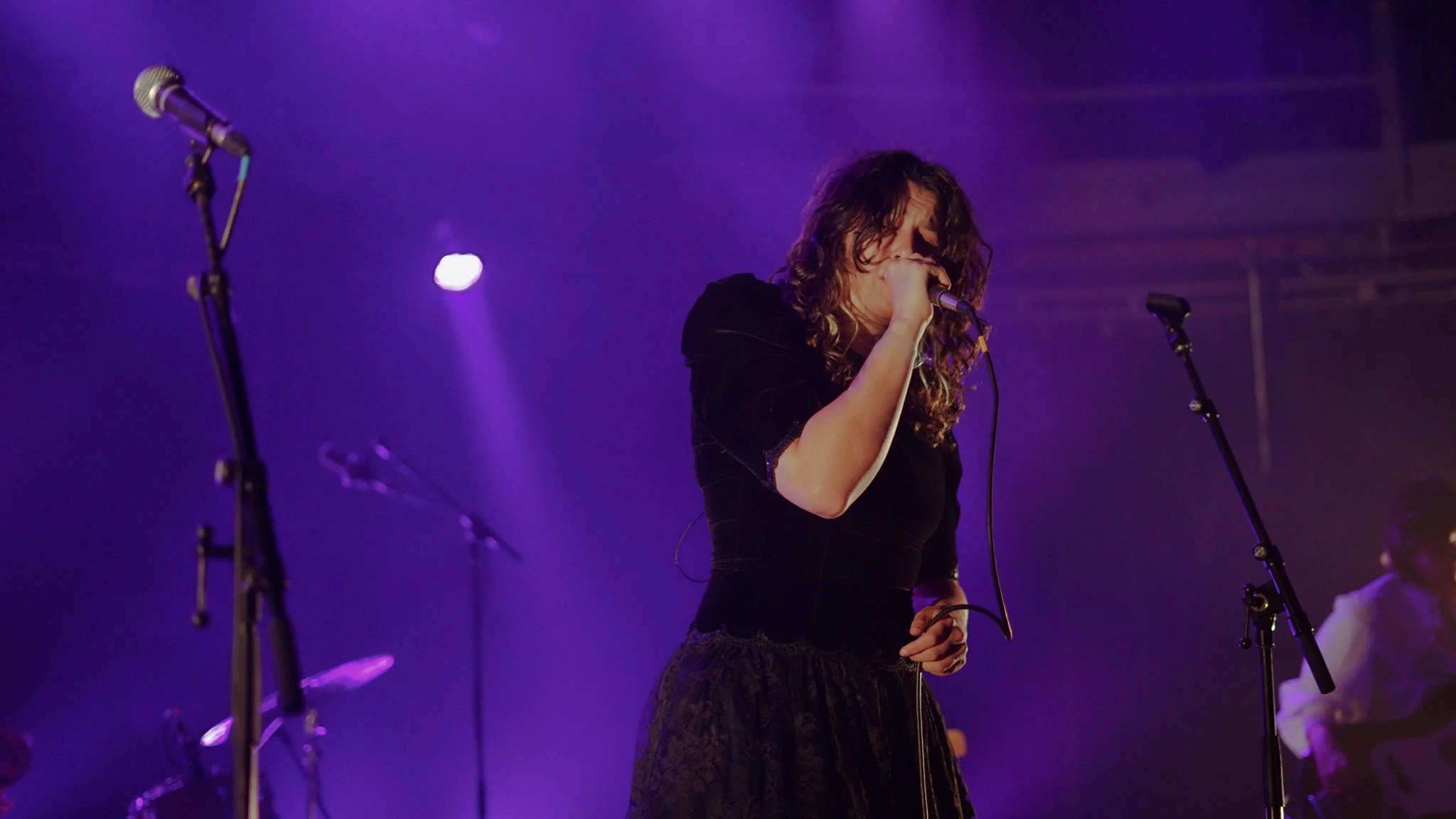
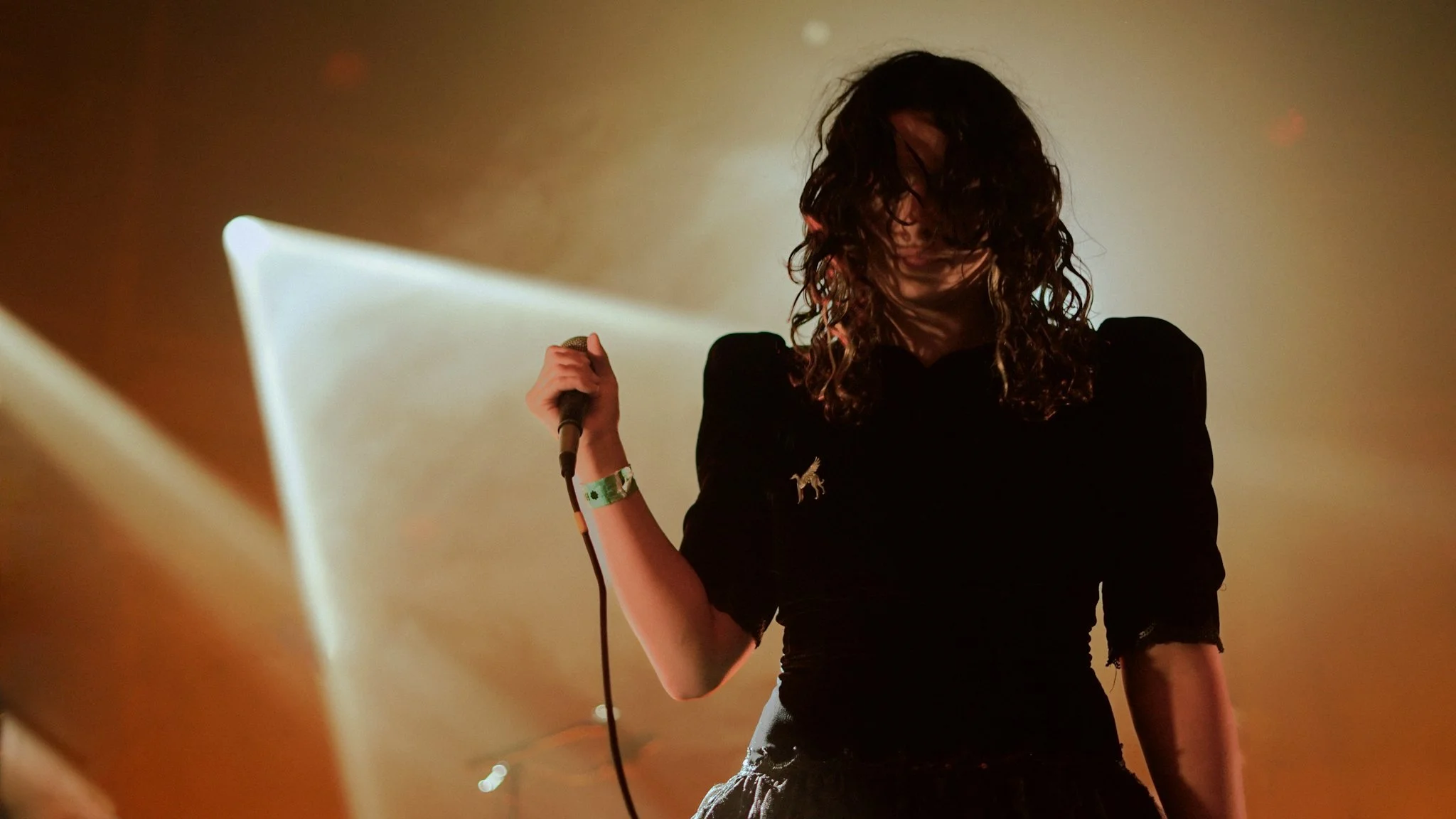
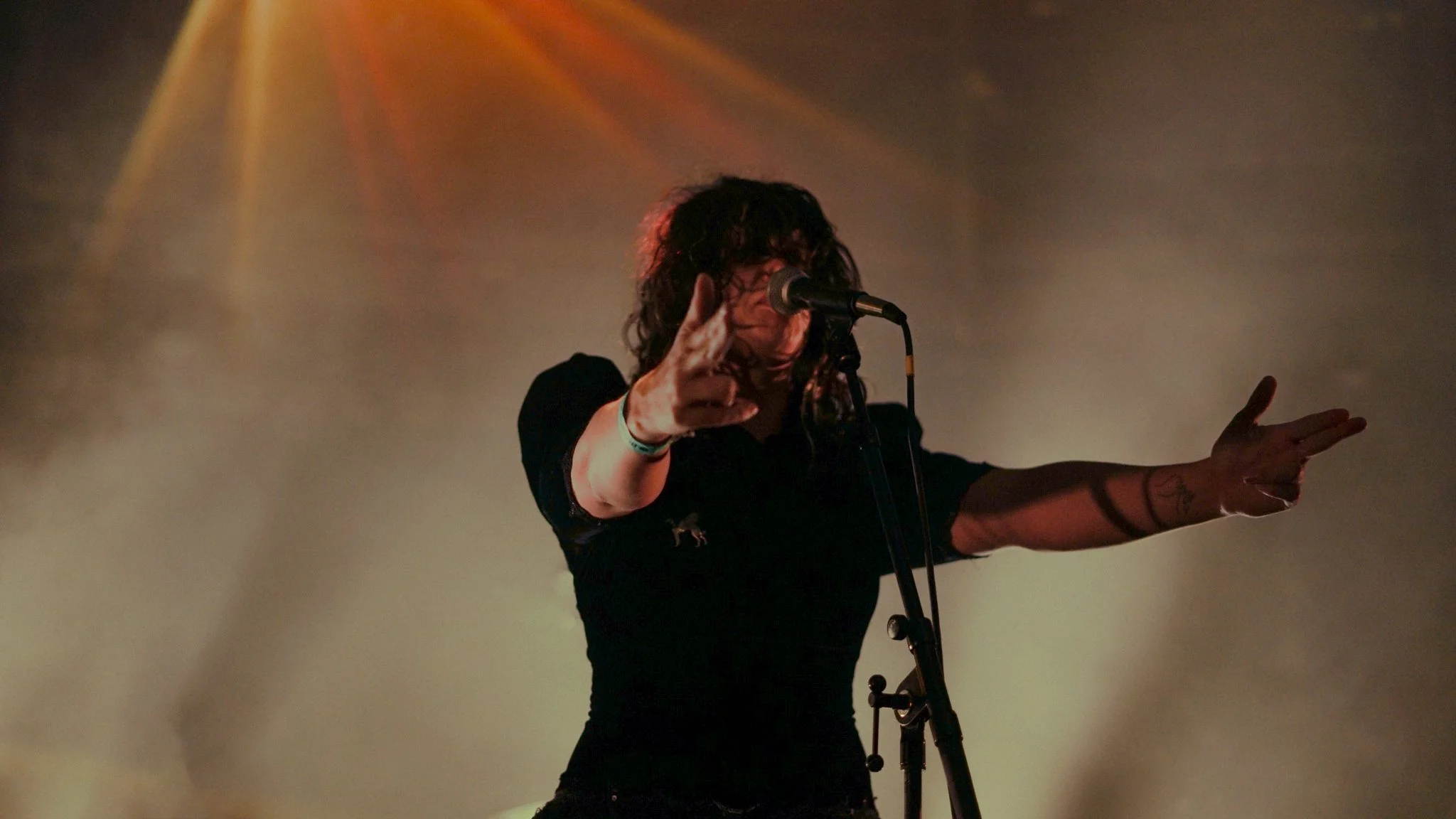
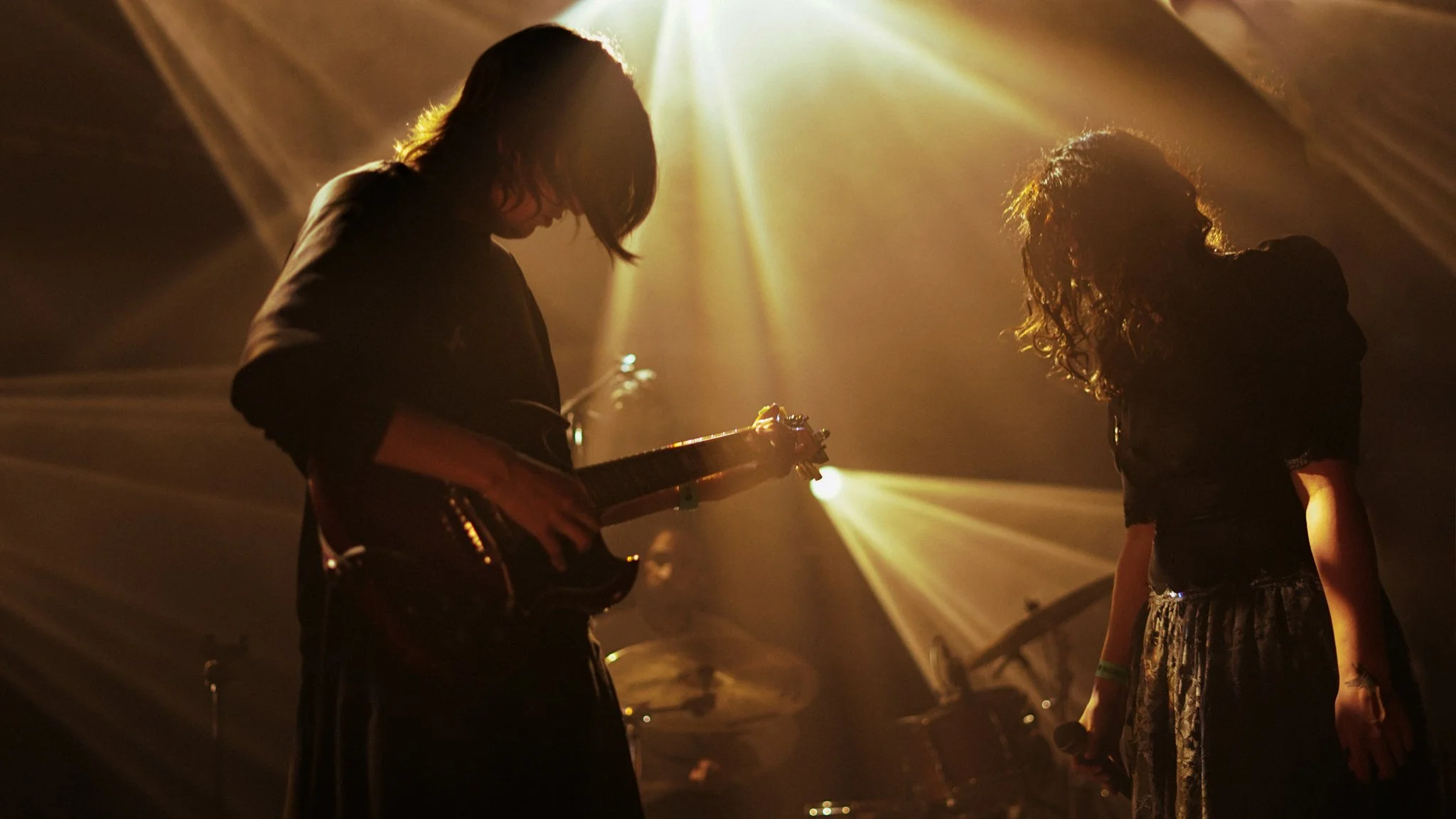
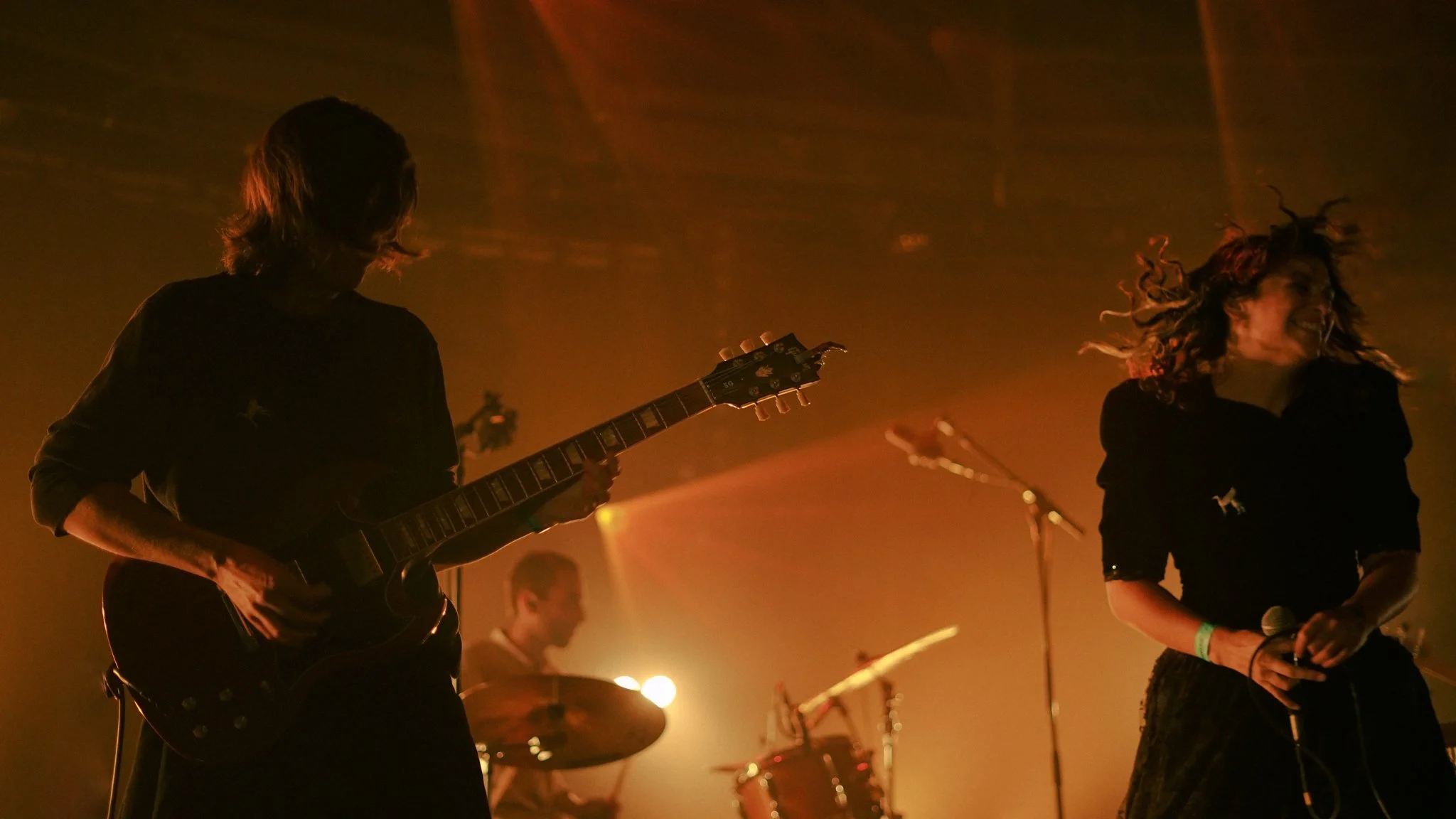
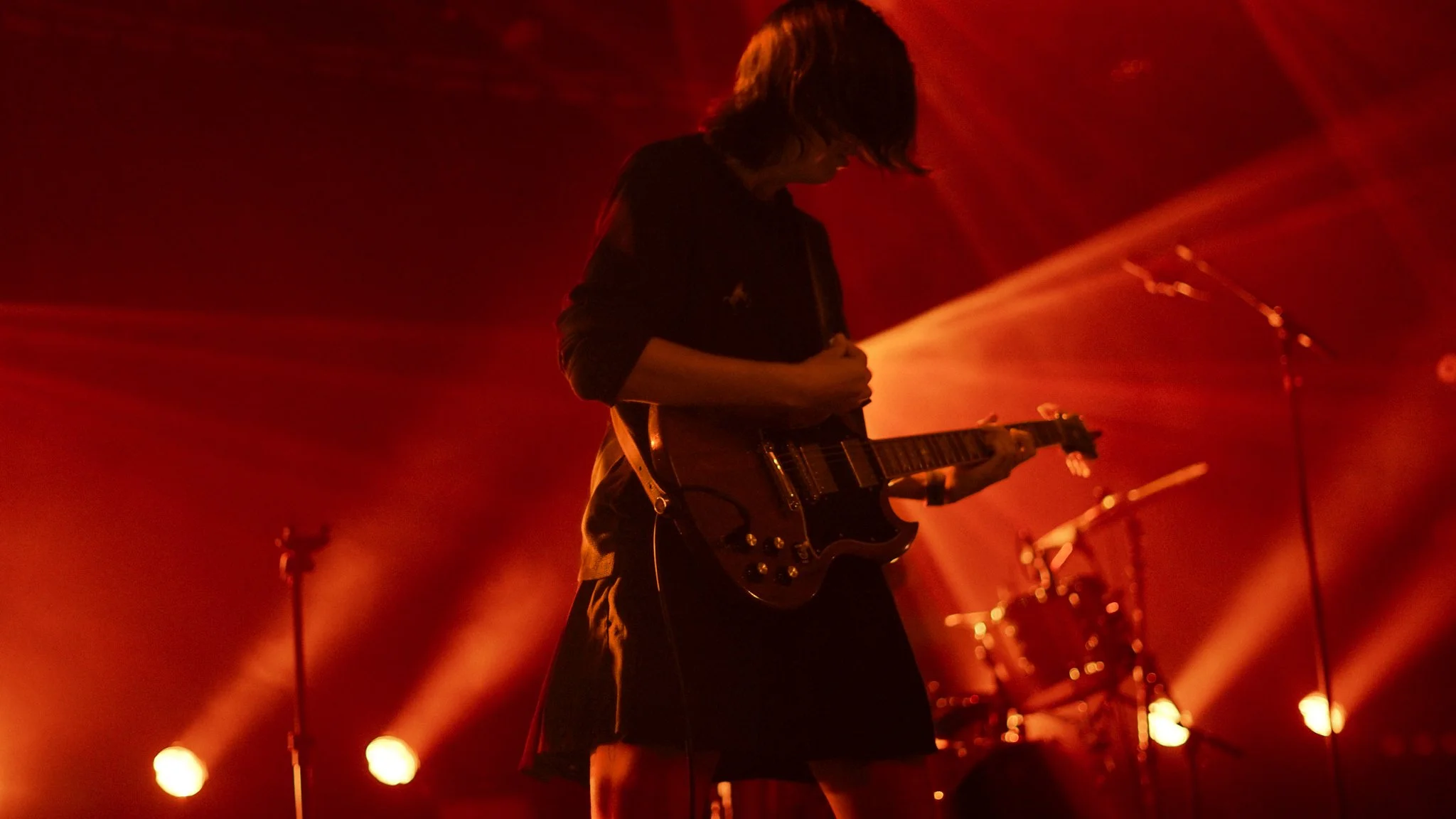
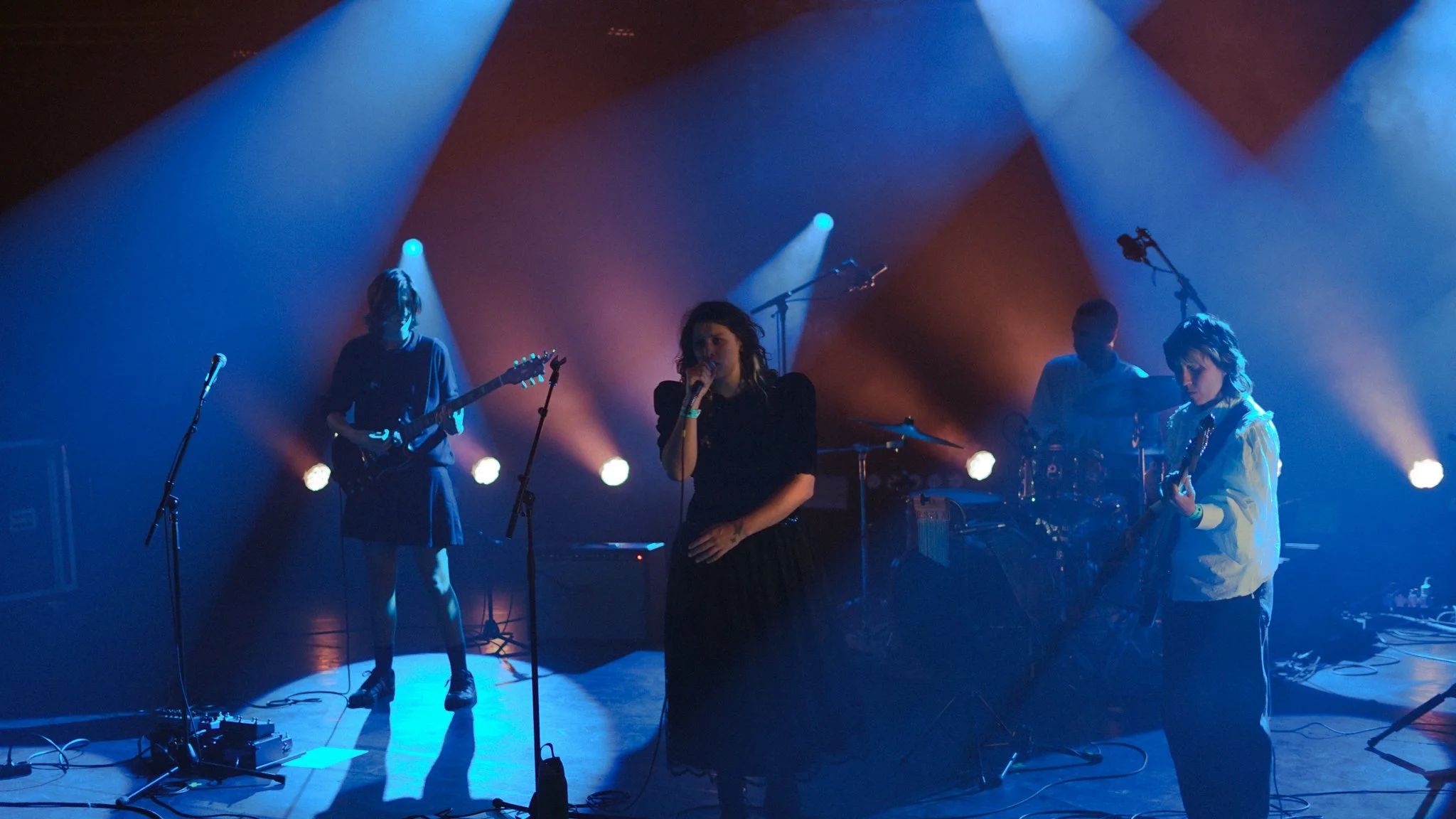
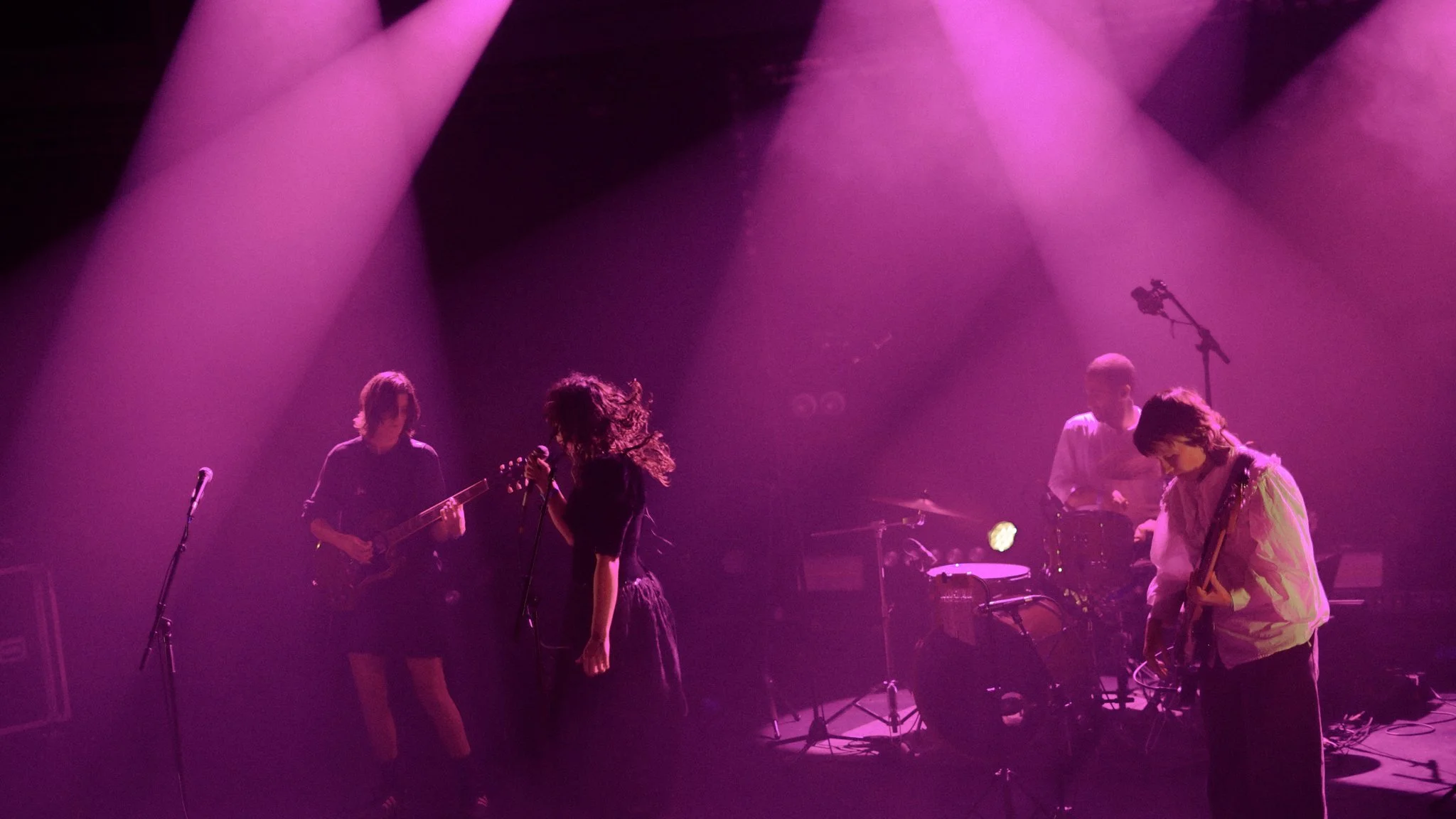
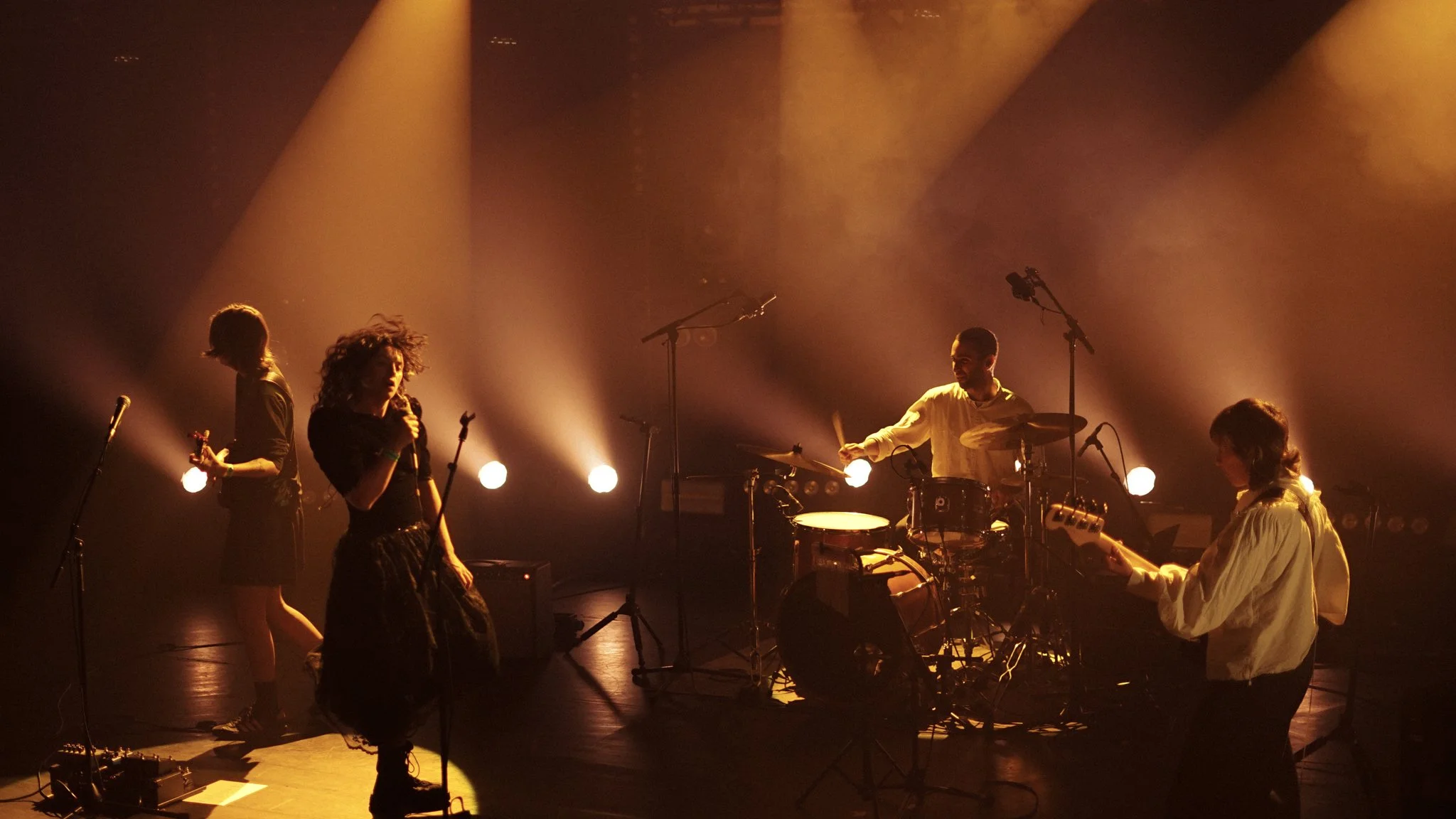
LUNA: I'm hoping you get to collaborate with at least one of those artists. The production of the album is very intriguing. What musical influences did you have for this album specifically?
ALTENDAHL: Oh, we had so many. We really wanted it to feel like you couldn't place it in a time, or an era. So we wanted it to sound kind of 90s, but also modern and also a little 80s, but you couldn't really be like this belongs in this time period. A lot of Joni Mitchell, Oasis, Nirvana, Kate Bush, Bruce Springsteen.
SHORE: There's a lot of opera. It was a big thing. We listened to Harold Bud, a lot of Abba, Television, Scott Walker, Madonna, The Cure.
ALTENDAHL: We bounced around a lot while making this.
LUNA: You can tell there's a lot of influences when the project feels so complete. That’s how it feels here, so that's why I felt there was a lot of work and inspiration behind it, a lot of thought. You said that this was the album that you wanted to make your entire lives. So I have a very deep existential question. How do you feel that you've evolved as artists since your first project?
SHORE: It’s so interesting, because we've been sort of dealing with that on this tour, where we've been playing the whole album, front to back, and then it'll stop, and then we'll play old music. And it's such a shift.
ALTENDAHL: You feel like a completely different band. You're like, whose music are we playing now? (laughs)
SHORE: It feels like doing something and then doing a caricature of yourself afterwards. It's been really crazy. So definitely evolved in a huge way. We spent a lot of time trying to figure out what we wanted to make, and I think sort of started to settle on this, and it's just changed a lot. It's a lot darker sounding, and I really love how it sounds now, and I still love the old music too, but it's definitely changing. We’ll keep changing, but yeah, it's been really interesting putting this current album against songs from just a year or two ago. It just feels completely different. Yeah, I don't know yet. I hope we keep evolving. It feels really good to make something that feels like it challenged you, and it feels like you've grown in some way, and you're not just making the same thing over and over again. No matter how it's perceived or anything, I think this is just something you and I felt like we had to make.
ALTENDAHL: Yeah, and we've been trying to make this forever, I feel like.
LUNA: It also shows your versatility as artists. I always think of this, it will bring in a whole new brand of people. Even if some people don't like it, other people will.
ALTENDAHL: Yeah, exactly. It's so different.
LUNA: If all the indie people are gone, then all the alternative people will love this.
ALTENDAHL: I feel like we went from such an indie pop to alternative on this album. It was a big step.
LUNA: What matters the most is that you’re happy with the project.
SHORE: We love it so, so much, it'll find its audience. That’s sort of how I feel about it.
LUNA: Claire, how do you think you’ve evolved?
ALTENDAHL: Oh god, so much. The first thing we ever recorded, we barely knew how to record anything. When I think back to Garden Spider kind of being the first project we really released. We did that in my parents’ house in Minnesota, just like in a bedroom, and we didn't even have speakers. We didn't have studio monitors. We just did it all on headphones, which is insane. We did that then in the next couple of EP’s, we made in a bedroom in New York City. Now this one, we finally made it with an actual producer, and we did everything analog and to tape, and completely changed our process. And it just sounds so amazing. I think we've just evolved so much from. When we first started, we were like, I don't know what a good snare sounds like. I don't know what I want drums to sound like. I don't know what I want the production to be. Versus now, we're so specific on things. We know exactly kind of what we want and can get those sounds. I think that's so amazing. It's been so nice to know. It’s a very different band from then, but I think at our core, we still kind of write from the same place, just we know now musically how to bring it to life.
LUNA: What could we expect from you next with this release?
ALTENDAHL: Well, after Europe, we go and we tour the US, and then I think we'll probably start writing the next one.
SHORE: Writing some more, touring some more.
ALTENDAHL: Just continue.




